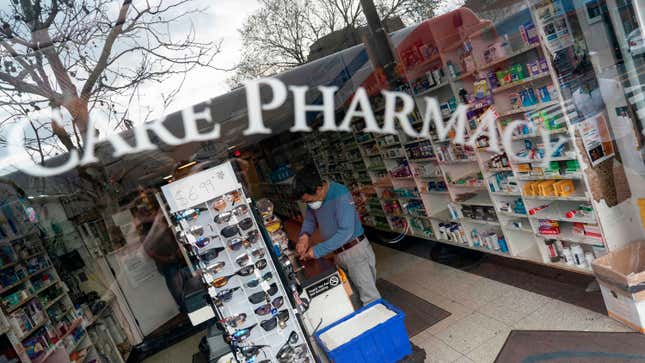

After a visit to my neighborhood drug store for toilet paper, lightbulbs, and the correct coffee filters, I came back to my apartment as if in a fugue state and took stock of my purchases. I got everything that I needed, but, also, a few things I did not: nail polish, nail polish remover, seven large envelopes, and some Cadbury eggs plucked from a display near the cash register. I spent more money than I had wanted to spend, but the anxiety I had felt about leaving the house in the first place was gone, erased by the relief of consumption.
The drugstore in my neighborhood is a Duane Reade, a chain that is a suitable replacement for any other big-box retailers. A honking big suburban Target is my go-to respite for curing ennui or restlessness, but New York lacks the real estate for the kind of expansive, warehouse-esque experience I crave. A suburban Costco is truly the sweet spot—an airplane hangar full of free samples and jumbo-sized boxes of Cheerios, with a cheap hot dog as your reward. Getting out of the house—and by extension, my own head—for even a moment and going to a TJ Maxx for an hour kills time and lets me work out the issues of the day. Setting aside larger problems for the smaller, more manageable task of deciding if $24.99 is too much to spend on a blow dryer is one of life’s greatest pleasures, better than chain-smoking for an hour on a sunny beach with a beer in one hand.
-

-

-

-

-

-

-

-

-

-

-

-

-

-

-

-

-

-

-

-

-

-

-

-

-

-

-

-

-

-

-

-

-

-

-

-

-

-

-

-








































